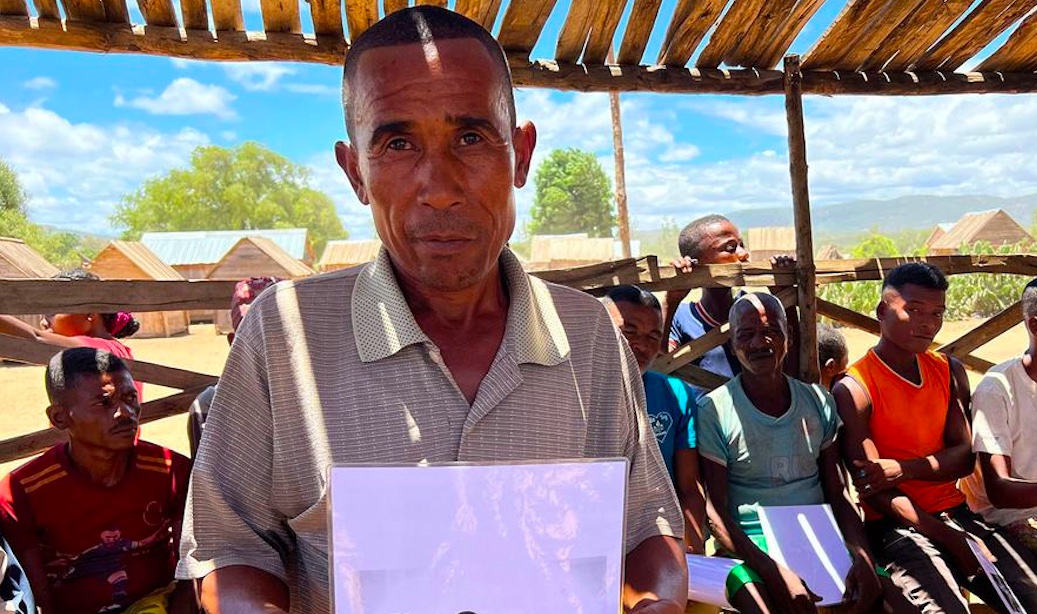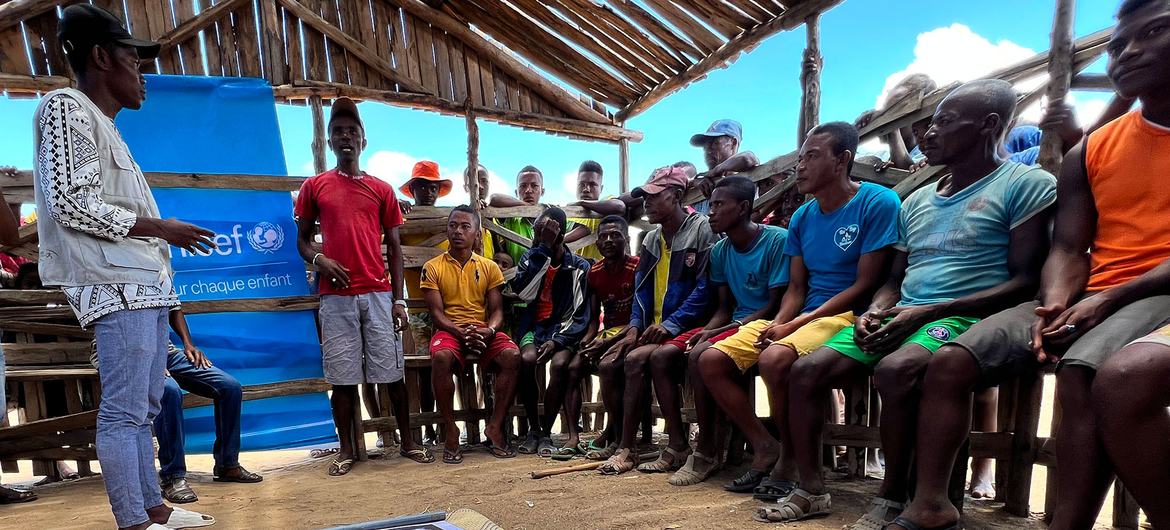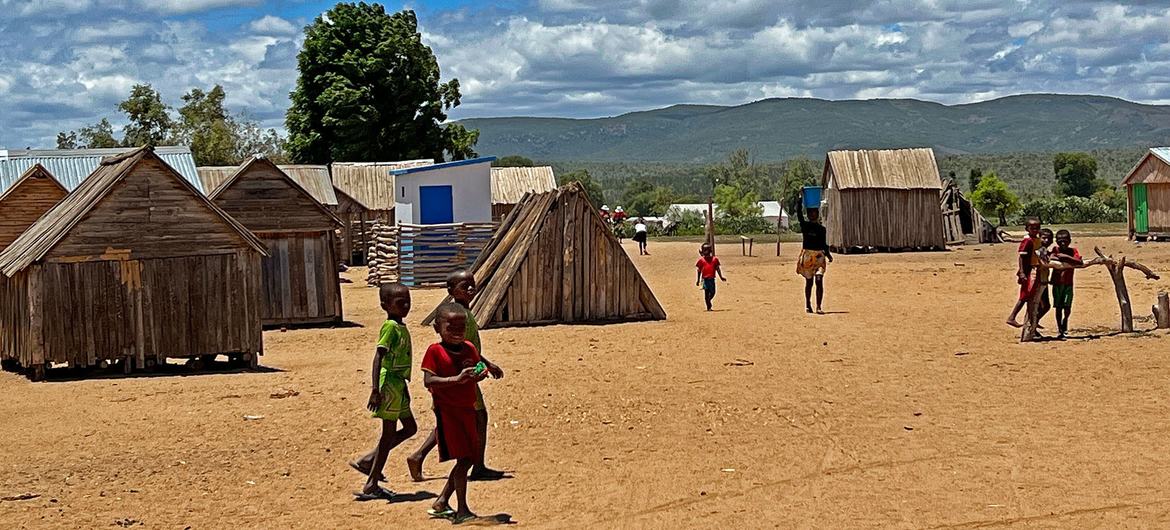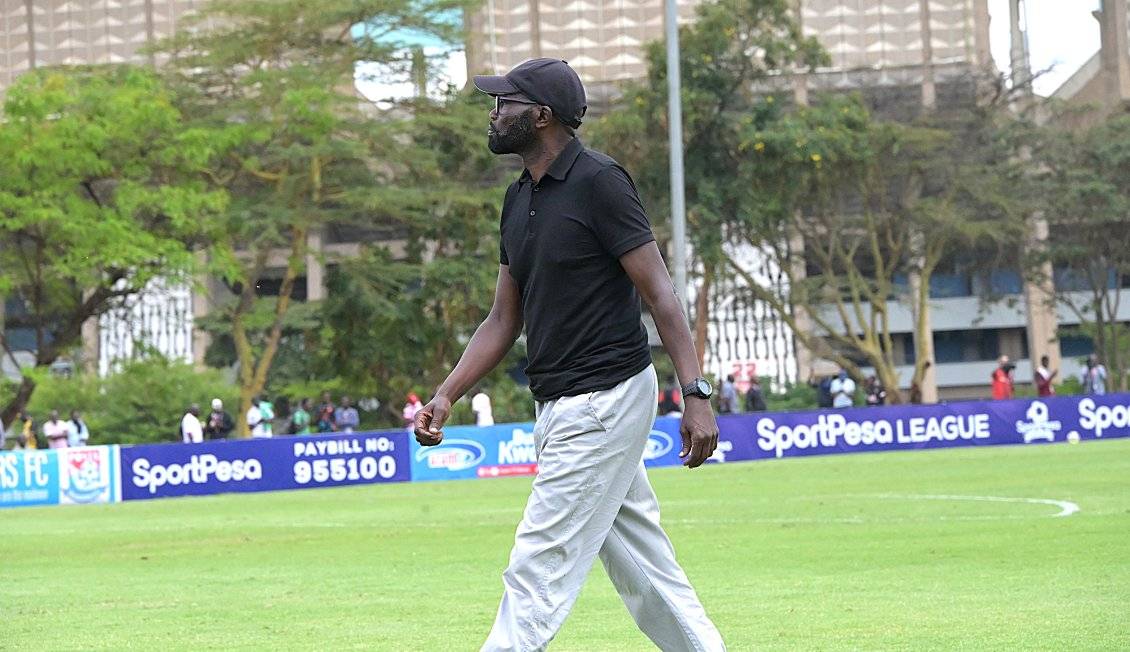Southern Madagascar, where girls are sold into marriage before they are born

Efforts are being made in the south of Madagascar to end a traditional but illegal practice in which girls are promised as a wife to older men, sometimes even before they are born.
The arranged marriage typically involves the exchange of a highly prized and culturally important Zebu cow for teenage girls as young as 13 years old.
Now two UN agencies, UNICEF and the UN Population Fund (UNFPA), are working together with the local authorities to educate women and men, through sessions focusing on positive masculinity, about the dangers of the practice and how to treat women as equals.
Daniel Dickinson of UN News spoke to Lehilahy Modely, who joined one of the sessions in the village of Ifotaka, in the Amboasary district of the Anosy region of Madagascar.
More To Read
“I am here today in a small village meeting space with about 30 other men to understand and discuss all the types of violence that are perpetrated against women and girls.
There is a selection of images we have to choose from to describe the different ways men are violent towards women.
I have chosen an image that shows the outline of a man about to strike a woman, which has led to a discussion about physical harm. Some images depict sexual, psychological, and economic violence, as well as the maltreatment of children.
One of the biggest challenges I see in my region is the combination of economic violence and the abuse of the rights of girls even before they are born. Families, which are normally very poor and vulnerable, agree to exchange their unborn girl child for a Zebu cow.
The Zebu is very important in our culture as it is a sign of wealth and respectability. It is often at the centre of many traditions; for example, in certain ethnic groups, as a rite of passage, boys are forced to steal a cow before they can be accepted as a man in the community.
A Zebu is normally sacrificed to mark a birth, a circumcision ceremony, a death, or a marriage.
 Men meet once a month to discuss gender issues and how to act positively towards women. (Photo: Daniel Dickinson/UN News)
Men meet once a month to discuss gender issues and how to act positively towards women. (Photo: Daniel Dickinson/UN News)
This practice is very common in the south of Madagascar, and I have seen many teenage girls, some as young as 13, forced to leave their families and become the wives of an older man. This man may have other wives as well, as polygamy is also practised here.
Girls who refuse this arrangement are often disowned by their families because of the shame it brings, and I have heard some cases of girls committing suicide.
Culture and poverty
The man will often pay the maternity costs for his future child bride as well as support the family in other ways up until he receives the girl and presents the Zebu.
Families engage in this exchange partly because of tradition but mainly because of poverty. I am very frustrated to see this, and I have a lot of empathy for these girls who have no choice and who are no longer able to carry on living like children or even go to school.
We have talked about this in our positive masculinity groups, and most men understand that it is they who have to make the change because they are the actors of violence and subversion.
Too many of my friends see women as feeble and fragile, show little respect towards them, and are not interested in hearing their views.
Those friends consider me weak and joke that I am controlled by women, just because I try to promote their well-being and rights. Even though I disagree, I have remained friends with them.
 Some of Madagascar’s most vulnerable communities live in the south of the island country. (Photo: Daniel Dickinson/UN News)
Some of Madagascar’s most vulnerable communities live in the south of the island country. (Photo: Daniel Dickinson/UN News)
We meet in this group once a month; the meetings also include information about how to report incidents of violence against children.
These cases are referred to Center Vonjy, an integrated care centre for child victims of violence in the town of Fort Dauphin.
I do now see that some men recognize that we should change our attitudes and begin to think of women as having the same rights as we do, which I believe will lead to equality.
Change will not come tomorrow, but men must do their best to end this culturally acceptable but illegal practice.”
Top Stories Today













































